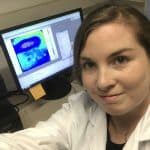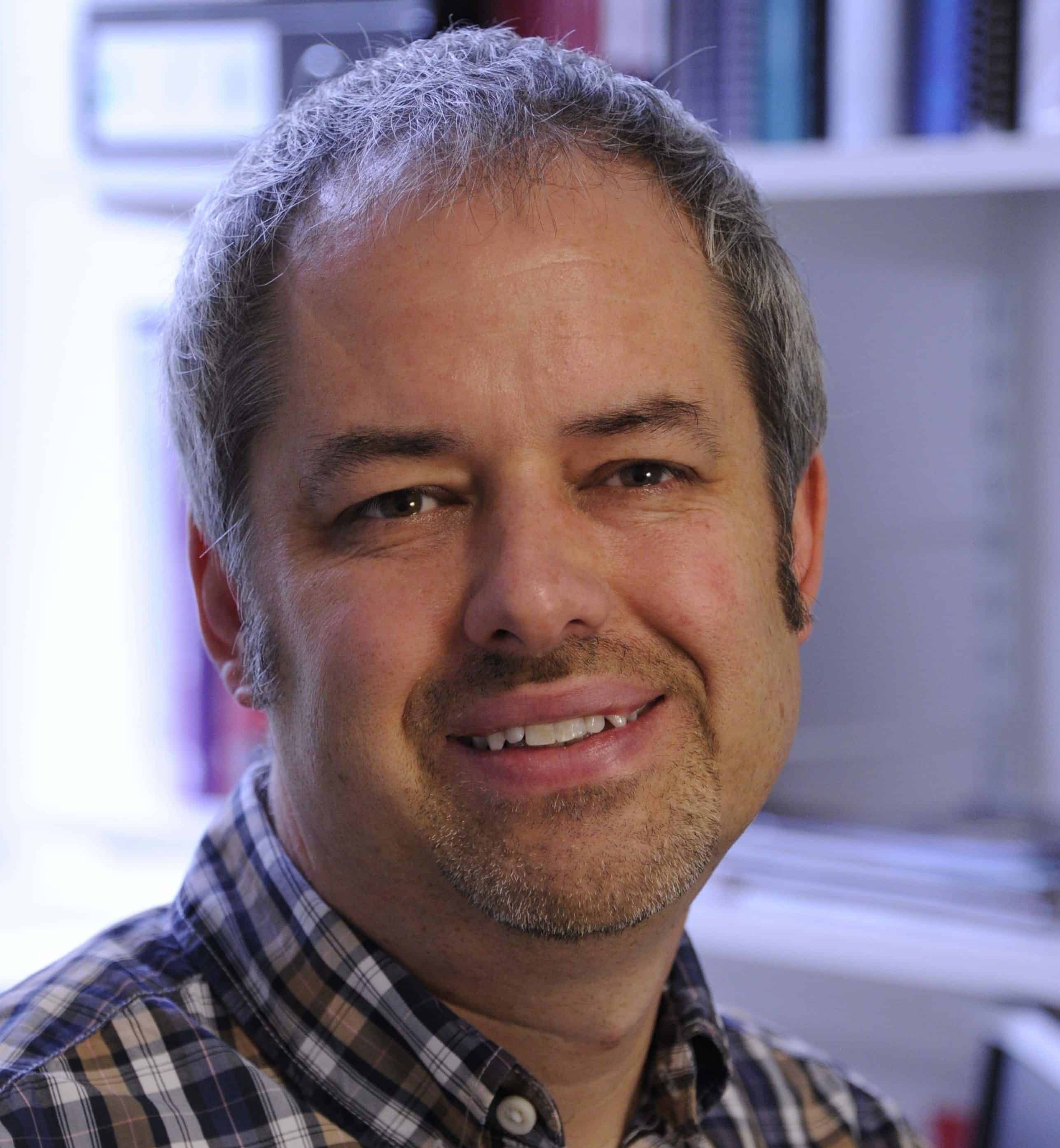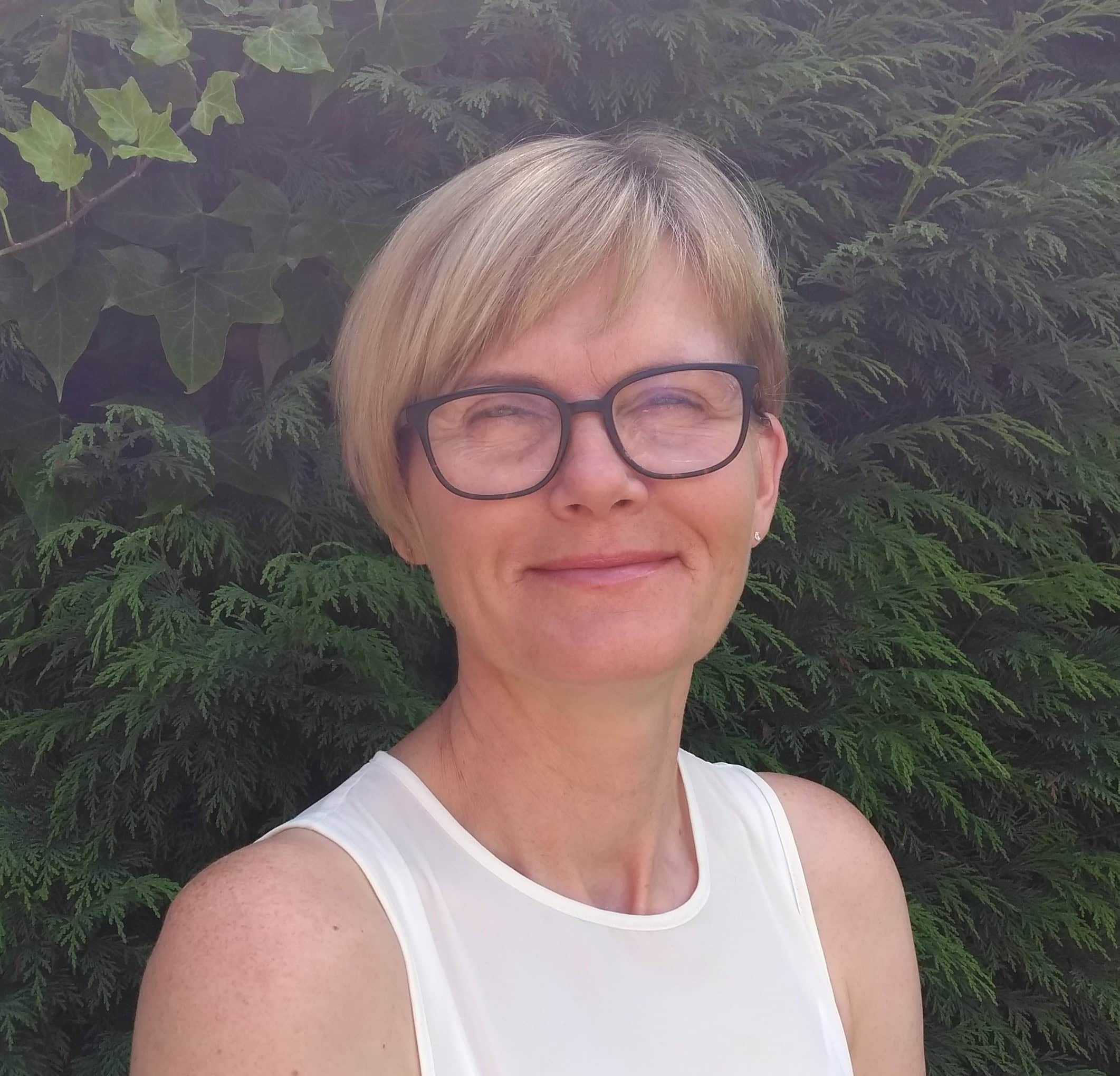Taking the whole-school approach to I’m a Scientist
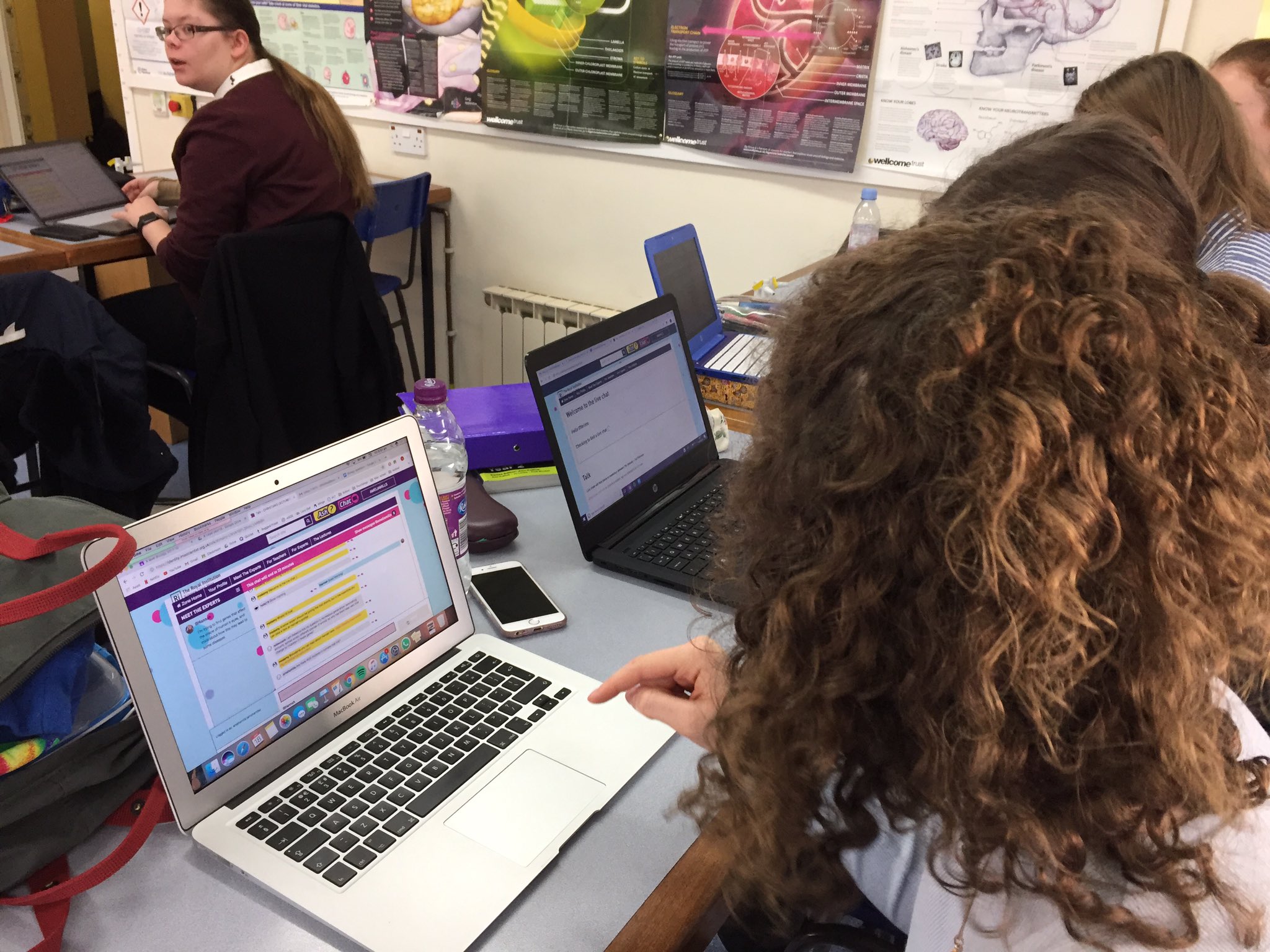 “My colleagues were buzzing. They were watching conversations unfold, and seeing individual students’ interests that they hadn’t seen before. It’s a great way to get to know students in a different light. ” — Jon Hale, Head of Biology at Beaulieu Convent School
“My colleagues were buzzing. They were watching conversations unfold, and seeing individual students’ interests that they hadn’t seen before. It’s a great way to get to know students in a different light. ” — Jon Hale, Head of Biology at Beaulieu Convent SchoolWhen PHSE plans were scuppered by the COVID-19 pandemic, Jon Hale chose to bring I’m a Scientist to an entire school… at the same time. Continue reading

 In 2008, Beijing hosted the Olympics, George Sampson won Britain’s Got Talent, and I’m a Scientist, Get me out of here hosted its first event: each Zone hosting 5 scientists and 25 school classes.
In 2008, Beijing hosted the Olympics, George Sampson won Britain’s Got Talent, and I’m a Scientist, Get me out of here hosted its first event: each Zone hosting 5 scientists and 25 school classes. 
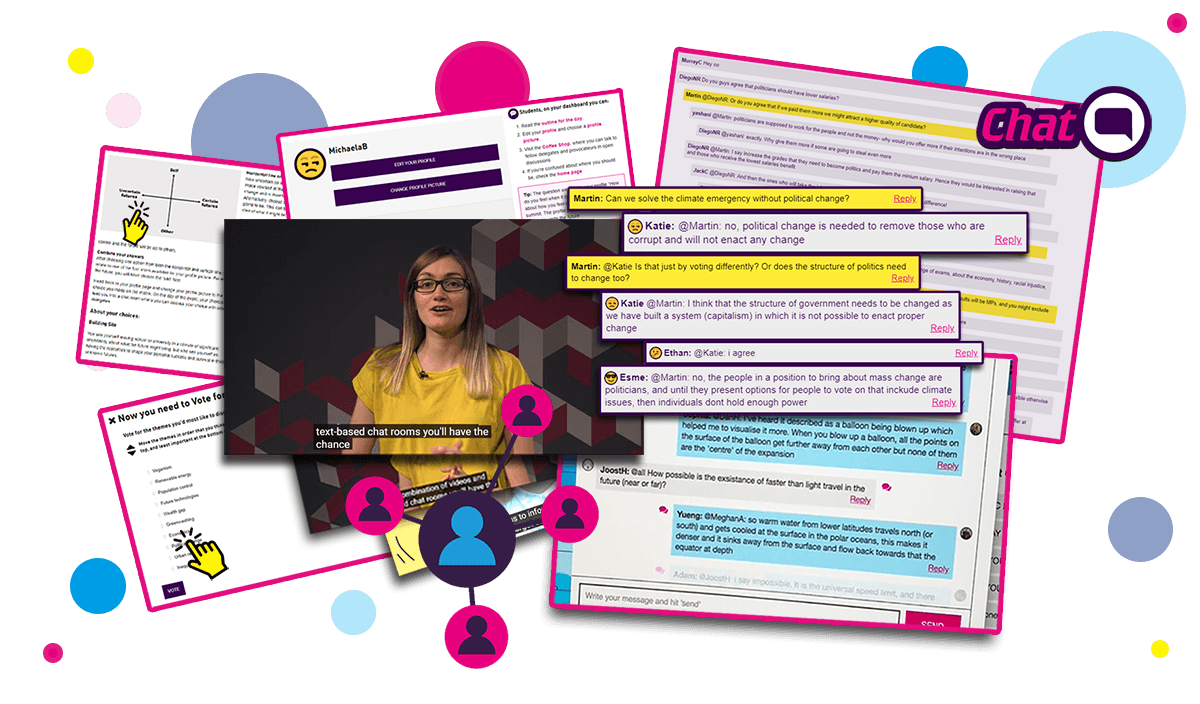
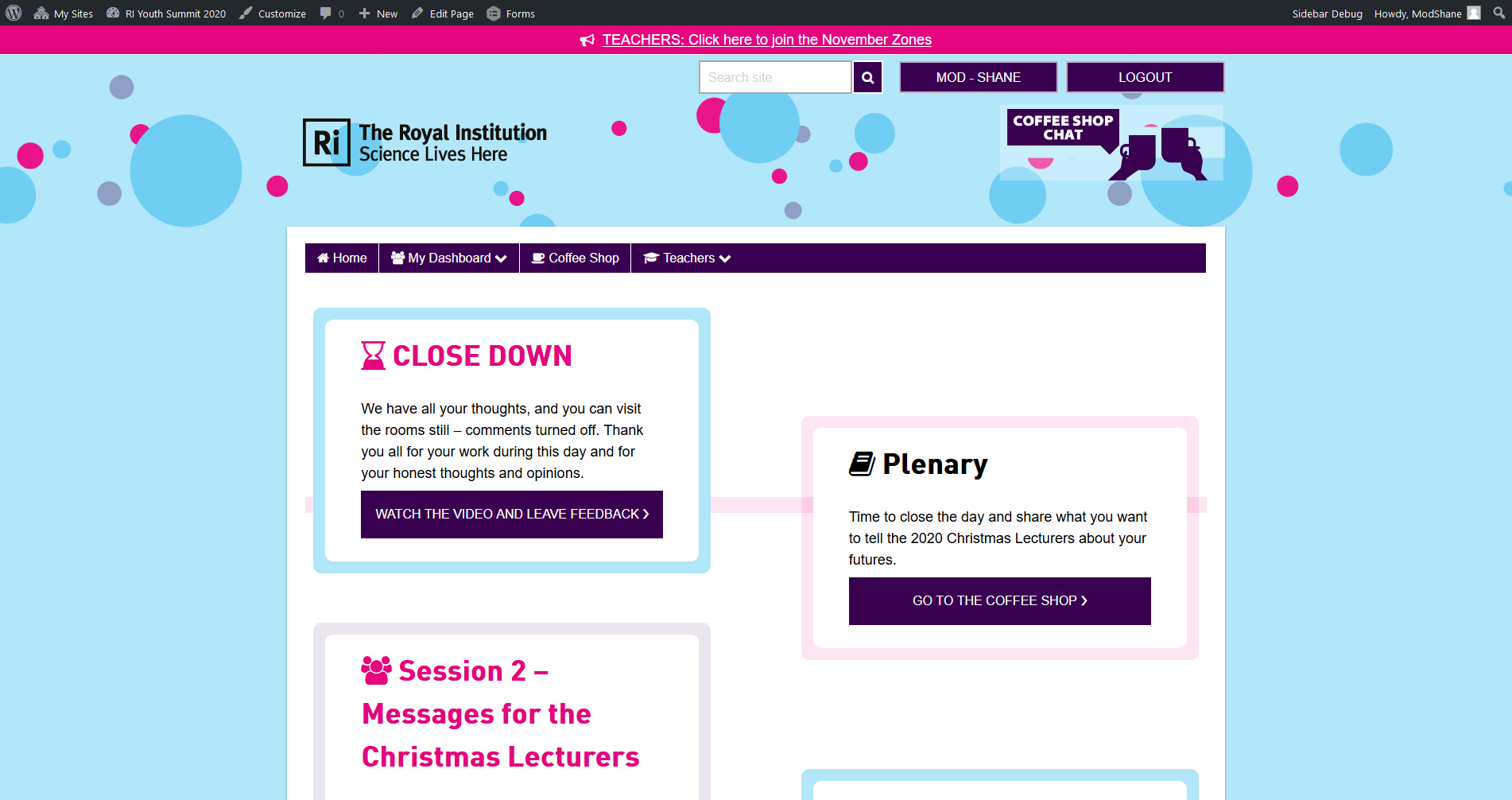 Each year the RI run a youth summit on a subject related to the CHRISTMAS LECTURES. In 2020 it was decided to run the Summit prior to the filming of the lectures so that the views of the delegates could be communicated to the lecturers. However the Covid-19 pandemic intervened and the RI building remained closed to the public.
Each year the RI run a youth summit on a subject related to the CHRISTMAS LECTURES. In 2020 it was decided to run the Summit prior to the filming of the lectures so that the views of the delegates could be communicated to the lecturers. However the Covid-19 pandemic intervened and the RI building remained closed to the public.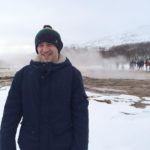 “Thank you all so much for taking part, we had so many great questions and I hope you all enjoyed it! I had a great time, it was really heartening to see the enthusiasm you all had for science and I hope that we have inspired some of you to enter science as a career. I still can’t really believe I won, especially with some amazing scientists in our zone, so thank you to everyone.”
“Thank you all so much for taking part, we had so many great questions and I hope you all enjoyed it! I had a great time, it was really heartening to see the enthusiasm you all had for science and I hope that we have inspired some of you to enter science as a career. I still can’t really believe I won, especially with some amazing scientists in our zone, so thank you to everyone.”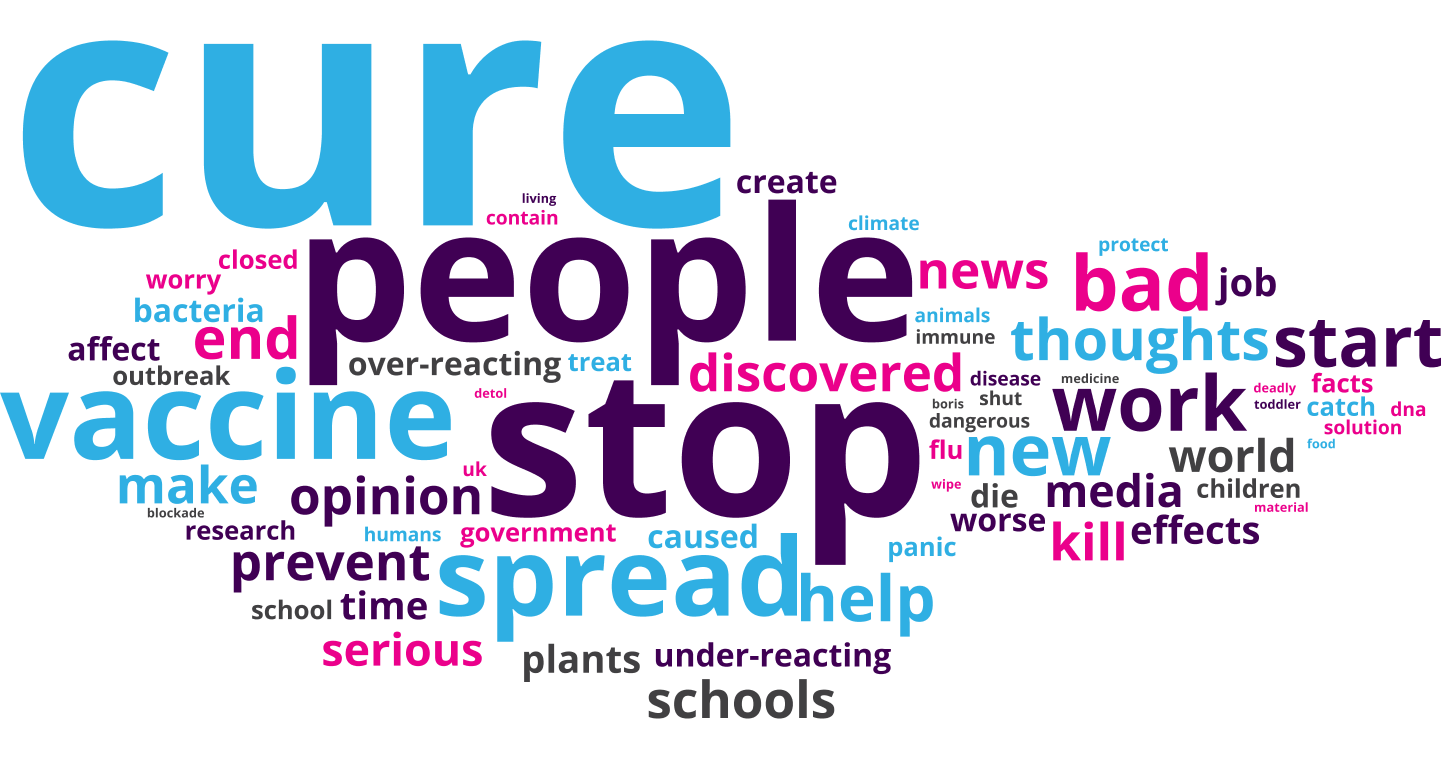 With schools across the UK due to close this week, the impact on the daily lives of students and young people of the COVID-19 outbreak is clear. We wanted to do a little analysis to look at what young people are concerned about, what are they asking?
With schools across the UK due to close this week, the impact on the daily lives of students and young people of the COVID-19 outbreak is clear. We wanted to do a little analysis to look at what young people are concerned about, what are they asking?